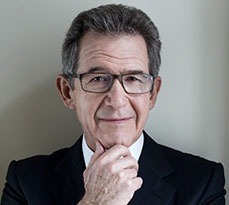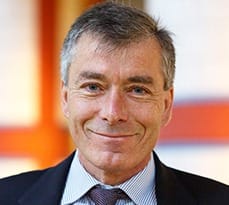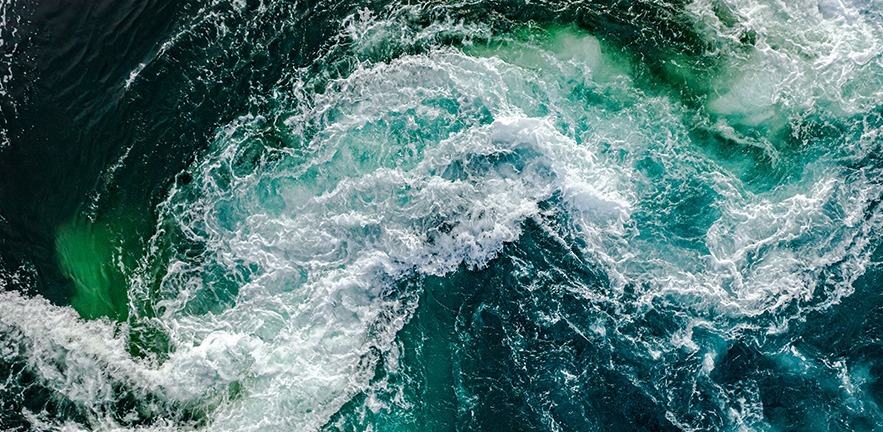The fact that the COVID-19 (coronavirus) pandemic stems from nature may prompt people to put more emphasis on changing behaviour to tackle climate change, says Lord John Browne, former CEO of energy company BP, in a video interview with Professor Christoph Loch, the Dean of Cambridge Judge Business School.

“When nature does something – not presidents or prime ministers or armies, but nature – our response is very different,” said Lord Browne, Chairman of the Francis Crick Institute and Deputy Chairman of oil and gas company Wintershall Dea, and a former Chairman of the Cambridge Judge Advisory Board.
“Resilience and fragility are on the agenda,” he said. “Climate change and the consequences of that, compared to COVID-19, could be vastly bigger,” he told Cambridge Judge Dean Christoph Loch. “And I think an appreciation that nature is not to be tampered with in the way we are tampering with the atmosphere may become more important. People will think twice about how much carbon they are using and how much they are putting in the atmosphere.”
There may also be a “big and lasting impact” in policymaking with regard to renewable energy sources such as wind and solar, Lord Browne added in the video, part of the series of videos “CJBS Perspectives: Leadership in Unprecedented Times” organised by the Alumni & External Engagement team and Executive Education teams at Cambridge Judge.

Lord Browne said he had long believed that the oil and gas industry is part of both the problem and solution when it comes to climate change, in that it makes products containing hydrocarbons but also can invest in decarbonisation technology and other key measures.
He added that it is short-sighted to focus only on the practices of private-sector energy companies, given that 80 per cent of world oil and 60 to 70% of natural gas is produced in enterprises that are fully or partly state-owned, while listed energy companies now comprise less than 5% of the S&P 500 index compared to 15% at one time. “If you just shut down the private sector completely, the chances are the oil and gas would still be produced by the state sector, so be careful what you wish for here.”
Lord Browne predicted that the COVID-19 crisis will have lasting effects on supply chains. “People won’t necessarily apply long supply chains to the production of goods where they don’t have to. There will be a balance, I think here, as we redefine efficiency to include also resilience – and that means just-in-time, zero inventory, long supply chains probably are a thing of the past for some things that we make, but not for everything.”
Lord Browne said the coronavirus crisis has underlined how leaders need to learn to make decisions based on imperfect information. “They have to make decisions, they absolutely have to make decisions, so they need to make them in a way that is partly reversible. And they have to be clear about direction and objectives.
“If the objective is to reduce deaths, remember that objective; if the objective is to put the economy first and everything else second you’d better be clear about that.
“These are hard trade-offs: the economy or people dying. I do believe that the general public understand this trade-off, and that they would appreciate a clearer debate here.”
The interview is part of our CJBS Perspectives: Leadership in Unprecedented Times series of talks and presentations from exceptional leaders, faculty and alumni, born of the challenging times in which we all currently find ourselves.


